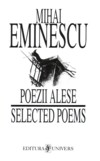| Wretched Dionis (fragment)
…likewise, if I close one eye, I see my hand smaller than with both eyes. If I had three eyes, I would see it larger, and the more eyes I had, the larger everything around me would seem. Nevertheless, born with thousands of eyes among colossal creatures, all keeping their proportions in relation to myself, they would seem to me neither larger nor smaller than today. Let us imagine the world shrunk to a bullet size, and everything in it analogously reduced; the inhabitants of this world, endowed with our sense organs, would perceive everything the same way and with the same proportions we do. Let us imagine it, caeteris paribus, a thousand times larger—still the same thing: with unchanged proportions, a world a thousandfold larger and a thousandfold smaller would be the same to us. So when I look at objects with one eye I see them smaller; with two, larger; how large are they in the absolute? Who knows if we are not actually living in a microscopic world and only the nature of our eyes makes us see it the size we do? Perhaps each individual sees things differently and hears things differently—and only language, the naming of the object which one sees a certain way and another a different way, unites them in understanding.—Language?—No. Maybe each word sounds different to the ears of different people—only the individual, being the same, hears it one way.
And in a space deemed without bound, would not a piece of it, however large or small, be a mere drop against its boundlessness? Likewise, in an eternity without bound, would not a piece of time, however large or small, be merely one suspended sliver? And here is how: supposing the universe reduced to a drop of dew, and time relations to a drop of time, the centuries in the history of this microscopic world would be mere winks; within these winks people would work as much and think as much as we do in our ages—for them, their ages would be just as long as ours are for us. In what microscopic non-finiteness the millions of infusoria of those researchers would be lost; in what infiniteness of time, the joyous moment; and all these would be just as they are today.
Indeed, the world is the mere dreaming of our soul. Time and space do not exist—they’re only in our soul. Past and future live in it as the forest in the kernel of an acorn; and infinity, alike, as the reflection of the starry sky in a dew droplet. If we could only learn the mystery that would connect ourselves to these two orders of things which lie hidden deep within us, (a mystery perhaps known to the Egyptian and Assyrian astrologers!), then, descending into the depths of our souls, we would be able to really live in the past and inhabit the world of the stars and of the sun. What a pity the art of necromancy and astrology have been lost—how many mysteries may have been thus revealed. And if the world’s a dream—why could we not coordinate its series of events according to our will? There is no truth to the idea that there is a past: consecutiveness lies in our mind; the causes of phenomena—consecutive for us, the same as ever—exist and work simultaneously. To be able to live in the time of Mircea-the-Great or Alexander-the-Kind-Hearted*—is it absolutely impossible? A mathematical point is lost in the boundlessness of its coordinates; a moment in time—in its infinitesimal divisibility, which cannot ever end. Within these atoms of space and time, what infinitude! Oh, if I could also become lost in the infinity of my soul, down to that phase of its emanation called the time of Alexander-the-Kind-Hearted, for instance—and yet…
* Note: Mircea cel Batran (Mircea-the-Great), who was Ruling Prince of Wallachia between 1386 and 1418, and Alexander cel Bun (Alexander-the-Kind-Hearted) who was Ruling Prince of Moldavia between 1400 and 1432, are legendary figures in Romanian history. |


